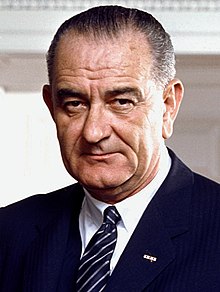Vladimir Putin, the Russian president, has demanded that the United States provide any evidence of the Syrian government's alleged use of chemical weapons against civilians to the UN Security Council.
Speaking to reporters in Vladivostok on Saturday, Putin told journalists that the proof should be shown to UN inspectors and the Security Council, adding that it would be "utter nonsense" for the Syrian government to have used such weapons.
"Syrian government troops are on the offensive and have surrounded the opposition in several regions. In these conditions, to give a trump card to those who are calling for a military intervention is utter nonsense," Putin told reporters in Vladivostok city near China border.
Regarding the provision of evidence by the US, Putin said that "if they don't show it, that means there is [no proof]".
Putin's comments came as the US made it clear that it would punish Syrian President Bashar al-Assad for a "brutal and flagrant" chemical weapons attack that it said killed 1,429 people near Damascus last week. Aid agencies said that at least 355 people were killed in the attack, with as many as 3,000 injured.
On Saturday, a Syrian security official told the AFP news agency that the country was expecting a foreign military attack "at any moment", and that it was "ready to retaliate".
As tensions rise, Arab foreign ministers will meet in Egyptian capital Cairo on Sunday to discuss Syria, Arab League deputy chief Ahmed Ben Helli said on Saturday.
The meeting had been scheduled for Tuesday, but was advanced "in light of rapid developments in the Syria situation and based on the request of several Arab states," Ben Helli told reporters.
On Tuesday, the Arab League accused the Syrian regime of carrying out chemical weapons attacks.
Permanent representatives condemned the "horrible crime carried out with internationally prohibited chemical weapons" and put the "entire responsibility" on Assad's regime.
Obama mulls 'limited' strike
John Kerry, the US Secretary of State, said on Friday that the dead in the August 21 attack included 426 children.
In a speech at the State Department, he described the attack as an "inconceivable horror".
President Barack Obama later said the US was considering a "limited narrow act" in response to the attack, which posed "a challenge to the world".
"We are not considering any kind of military action that involves boots on the ground or a long-term campaign," he said.
But Obama said the use of chemical weapons threatens US national security and merits a response.
The Syrian Foreign Ministry has dismissed Kerry's statement as "full of lies" based on "fabricated evidence", insisting the rebels carried out the deadly attack.
State-run news agency SANA said Kerry, who cited a US intelligence report, was using "material based on old stories that the terrorists have been circulating for more than a week".
The intelligence gathered for the US report included an intercepted communication by a senior official intimately familiar with the August 21 attack as well as other intelligence from people's accounts and intercepted messages, the four-page report said.
A team of UN experts finished gathering evidence of the alleged poison-gas attacks, the United Nations announced on Friday, though envoys said analysing the samples may take weeks.
Kerry said their report would only confirm that chemical weapons were used, and he made clear that would not change much for Washington since "guaranteed Russian obstructionism" would make it impossible for the UN to galvanise world action.
"The primary question is really no longer, what do we know. The question is, what are we - we collectively - what are we in the world going to do about it," Kerry said.
He said the president had been clear that any action would be "limited and tailored" to punishing Assad, that it would not be intended to affect the civil war there and Washington remained committed to a diplomatic solution to the crisis.
Al Jazeera's Patty Culhane, reporting from Washington, said: "What the administration is really considering is some kind of targeted cruise-missile strike, that would be directed at command-and-control units of the Syrian military, fuel depots, possibly some runways. But as the president just said, it should stay limited."
Shifting alliances
Kerry and Obama were speaking the day after British Prime Minister David Cameron failed to win parliamentary backing for military action in Syria.
Kerry made clear Washington would not be swayed from acting either by the opinions of other states: "President Obama will ensure that the United States of America makes our own decisions on our own timelines, based on our values and our interests."
He said that if a "thug and a murderer like Bashar al-Assad can gas thousands of his own people with impunity," it would be an example to others, such as, he said, Iran, Hezbollah and North Korea.
French President Francois Hollande told the daily Le Monde he still supported taking "firm" punitive action over an attack he said had caused "irreparable" harm to the Syrian people.
Hollande is not constrained by the need for parliamentary approval of any move to intervene in Syria and could act before lawmakers debate the issue on Wednesday.




